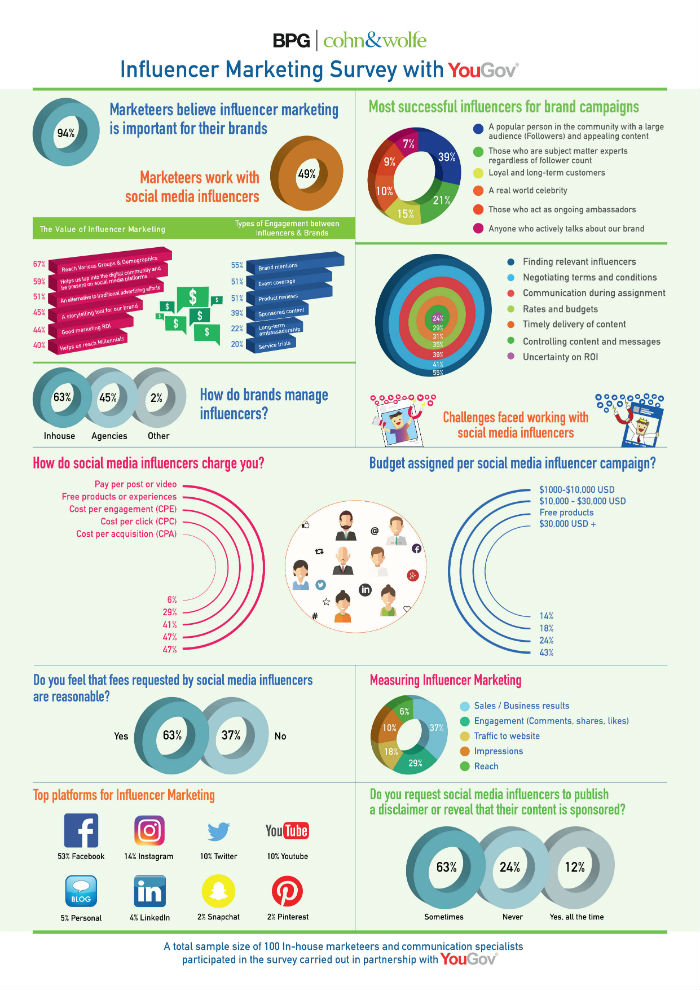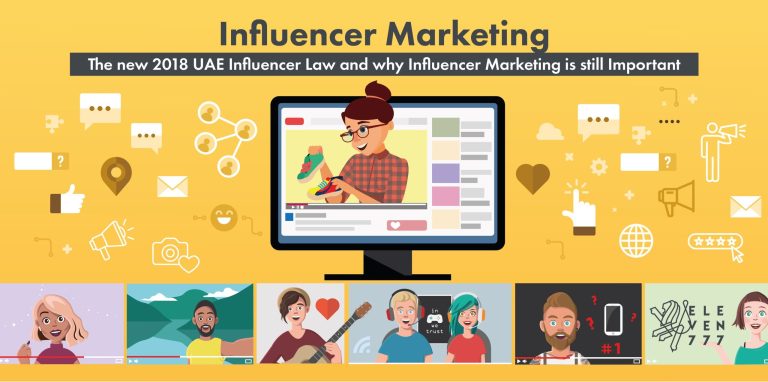We strategically capitalised on the influencer marketing trend and helped grow our favourite hospitality client’s Instagram following from 5,000 to 17,000 over the span of three months! Influencer marketing, when done right, can mean exponential growth for your brand.
The Power of Influencer Marketing
According to marketing communication group, BPG, about 94 percent of UAE-based brands believe that a significant way to promote their product or service is via a social media influencer. The incredible reach of influencers generally results in a high return on investment (ROI) for your brand, provided influencer marketing is done right.

However, with the negative criticism that has accompanied influencers, such as influencers shoring up their profiles with fake followers, the inflated pricing and an overall lack of accountability, the UAE National Media Council (NMC) recently announced that all brand-influencer collaborations will be regulated. As a result, influencers now need to secure a special media licence to continue to work their ‘wasta’ as influencers.
The UAE Influencer Law
The stated reasons for the new license are that it helps the UAE media sector remain on top of technological developments in electronic media, it protects the social values of the UAE and it ensures that all earnings stay above the table.
But what is the impact of needing to obtain an influencer licence on collaborations between brands and influencers?
While in conversation with food blogger, Naomi D’Souza, one of the UAE’s Top 100 most influential influencers, she expressed her thoughts regarding the licence when it was first announced, “There was confusion initially about the fine details of the license. I had to stop all my collaborations and reviews for a while. Not being able to do anything, while still having to maintain my blog with great content was stressful. But once all the details were sorted out, and I could continue with reviews and collaborations again, it was all good.”
According to the NMC, all influencers in the UAE would be conformant with the new influencer law if they fulfilled one of the following three conditions:
1. Obtained an Individual licence (AED 15,000 plus a Trade licence)
2. Obtained a Partnership licence (AED 15,000 plus a Trade licence)
3. Registered under an official NMC-approved influencer agency
While licensing is a move in the right direction towards regulating influencer work within the country, we asked Naomi whether she thought the licence would hamper the growth of influencers in the region. Or would it help?
“It depends, actually. If an already established blogger makes good money from their blog, the licence may help them grow. But if a new blogger is trying to make it and blogging is their only source of income, the licence could hamper their growth since 15,000 dirhams is a considerable investment!”
She added, “If bloggers do not have the resources for it, they may be forced to do a lot of free collaborations at the start until they build their reputation. Once they did that, they could then try investing in a licence to run authorised campaigns… to be honest, that’s how I started off, too”.
Vox Cinemas, one of UAE’s biggest movie theatre chains collaborated with Naomi D’Souza late last year.
What the New Influencer Law means for Brands: Some Best-Practices and Advice
With registrations underway since last month, here are a few things that you, as a brand, need to keep in mind before signing up your next influencer for a UAE-based marketing campaign.
1. First off, make sure you choose the right influencer for your brand or campaign.
Numbers aren’t everything. Besides having a big following, it is important to choose influencers who are connected to your industry and have a following of like-minded people as well. Their following constitutes prospective customers for your brand. In the case of our hospitality client, the influencers we leveraged are YouTube and Instagram personalities famous for their globetrotting adventures, and so it made sense to have them endorse the hotel.
2. Ensure that the influencer you are working with is registered and has a valid influencer licence.
If the influencer you are working with does not have a valid licence, they could run into problems with the NMC, and indirectly, your brand might end up in a tough spot as well.
3. With the new licence in place, influencers will likely pass the cost on to brands.
This ought to be a no-brainer. If influencers have to pay the hefty amount of AED 15,000 to obtain a licence, it only makes sense that they would charge a larger amount for their services. Fair play, and something to consider when planning your influencer strategy and return on investment for the same in 2018.
4. Relay your expectations to the influencer.
It’s easy not to keep track of campaign numbers. So, when the agreement is drawn up, make sure to let the influencer know that you expect them to share their statistics – impressions, click-through-rates, views, conversions – with you. It is a data-driven world, after all. Also, ask for their insights and feedback on the collaboration to help you fine-tune your next campaign.
Are you thinking of using influencers in your next campaign? Do you currently use them? How has the new influencer law impacted on your influencer tactics and strategy? Share your thoughts with us in the comments.
For other ways to step up your game on the gram and on Facebook, check out our Top 5 Instagram Hacks for 2018 and the Top 5 Facebook Hacks and Tactics.
Visit Naomi D’Souza’s Instagram to get a taste of the exciting work she’s doing. And make sure to come back next week for the full interview!
